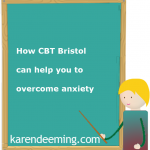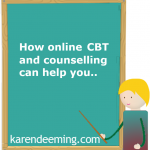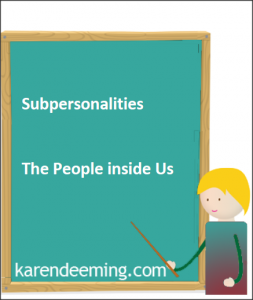
Identifying and working with subpersonalities to improve your decision making skills:
So what is a subpersonality?
Most of us have had the experience of being ‘taken over’ by a part of ourselves which we didn’t know was there. We say ‘I don’t know what got into me.’
Here are a few short definitions:
1 A semi permanent and semi autonomous region of the personality capable of acting as a person.
2. Subpersonalities are psychological satellites, coexisting as a multitude of lives within the overall medium of our personality. Each subpersonality has a style and a motivation of its own, often strikingly dissimilar from those of the others. Another way of describing it is that subpersonalities are the people inside us and that each of us is a crowd.
Psychologist, Miller Mair offers a more elaborate description:
“Perhaps it is easiest to introduce the idea of ‘self’ as a community of selves’ by referring to the smallest form of community, namely a community of two persons. Most of us have probably, at some time, found ourselves talking or acting as if we were two people rather than one. We talk sometimes of being in ‘two minds’ about something, part of you wanting to do one thing and part wanting to do something else. Quite often we hear people talk of having to ‘battle’ with themselves, as if one aspect of themselves was in conflict with another.”
During my MA training as a Psychotherapist, I was very fortunate to be taught about subpersonalities by Dr John Rowan who has written extensively about this topic. More recently though, at a one day workshop the Trainer, named Peter, was very brave in naming a few of his own subpersonalities: Peter Pan, Perfect Peter, Promiscuous Peter etc.
Below is a collage of a person’s subpersonalities

For example, the angel figure at the bottom of the collage represents their compliant, goody two shoes subpersonality and the headmaster with an accompanying wooden cane at the top of the image symbolizes their inner critic subpersonality.
Do you recall Mr Men, series of children’s books by British author Roger Hargreaves in the 1970s?
The series features characters with names such as Mr Tickle, Mr Happy, Mr Forgetful, Mr Daydream, Mr Uppity, Mr Silly, Mr Messy, Mr Funny, Mr Mean, Mt Chatterbox, Mr Nosey, Mr Greedy, Mr Impossible, Mr Strong, Mr Lazy, Mr Cheerful etc who have personalities and physical attributes based on their names.
Perhaps Hargreaves was referring to his own subpersonalities here?
As Stephanie Foley puts it in her very helpful you tube clip:
Subpersonalities are habits or patterns of behaviour that we have followed since childhood: eg inner child, the very responsible one, the rebel, the organiser, the controller, the adventurer, the saboteur, the aesthete or the worker.
By recognising and working with subpersonalities she argues that the conformist can be transformed into someone more adaptable, a rebel tendency can become innovation or maybe the rebel and the conformist can work together and develop a new sense of leadership.
See the clip here: https://www.youtube.com/watch?v=xbqZKNsl7A8
Often our subpersonalities are battling with one another and so can cloud our judgements or make us appear indecisive especially in the work place.
So as I see it, if we acquaint ourselves with our subpersonalities we can then identify the perfect environment in which they might blossom and thrive (ie create the ideal soil that promotes grow).
Subsequently we can establish a middle ground between those that are in opposition with one another such as the bully at work and the meek mild subpersonality at home. In other words, attempt to harmonize our subpersonalities so that we feel less fragmented and more whole.
By turning down the volume of the bully at work, the gentler side of one’s personality can emerge in order to make more balanced decisions and a more pleasurable and motivating office environment for work colleagues.
As Assagioli, Italian Psychiatrist and pioneer in the fields of Humanistic & Transpersonal Psychology wrote: “We are not unified; we often feel that we are, because we do not have many bodies and many limbs, and because one hand doesn’t usually hit the other. But, metaphorically, that is exactly what does happen within us. Several subpersonalities are continually scuffling: impulses, desires, principles, aspirations are engaged in an unceasing struggle.”
As Dr John Rowan articulates:
“The questions which seem to have been of most value in making subpersonalities concrete and explicit are the following:
What do you look like?
How old are you?
What situations bring you out?
What is your approach to the world?
What is your basic motive for being there?
What do you want?
What do you need?
What have you got to offer?
What are your blocks to full functioning?
Where did you come from?
When did you first meet (name of person – ie you)? What was going on?
What would happen if you took over permanently?
What helps you to grow?
How do you relate to women/men/children?
How does this relate to my personal story then?
The inner knowledge of my subpersonalities has helped me enormously to make my life work. In the context of this blog though, I’ll focus on the most appropriate examples.
As I explained earlier, two of the hardest life challenges I have needed to face so far was deciding whether or not to:
- escape the corporate cage, that is, my well-paid secure job and;
- leave behind my hectic London lifestyle and Harley Street Private Practice to live in the idyllic countryside and do my dream job as a successful Psychotherapist, Coach and Mindfulness Teacher at my Bristol and Somerset Practices.
The major conflict here was between my overly cautious risk averse subpersonality ‘Cautious Karen’ and my adventurer and thirst for knowledge and new experiences subpersonality ‘Curious Karen.’
Fortunately, following a number of lengthy debates between the two subpersonalties, Curious Karen managed to persuade Cautious Karen that both decisions would enhance my quality of life and achieve a healthy work life balance.
What can you do about subpersonality inner conflicts?
Be honest with yourself and acknowledge that you are probably struggling to make decisions as a result of subpersonality internal battles. Naturally, the reason will be different for each person and remember you’re not alone in this very common dilemma…
Take control by making friends with your subpersonalities and encourage them talk to one another.


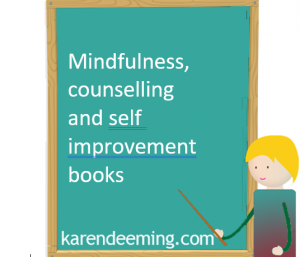

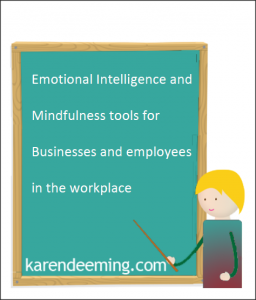


![Karen_Deeminga[1]](http://www.karendeeming.com/wp-content/uploads/2015/09/being-practice-self-portrait-e1541437891746.jpg) Welcome to my site. if you have any queries then please
Welcome to my site. if you have any queries then please
